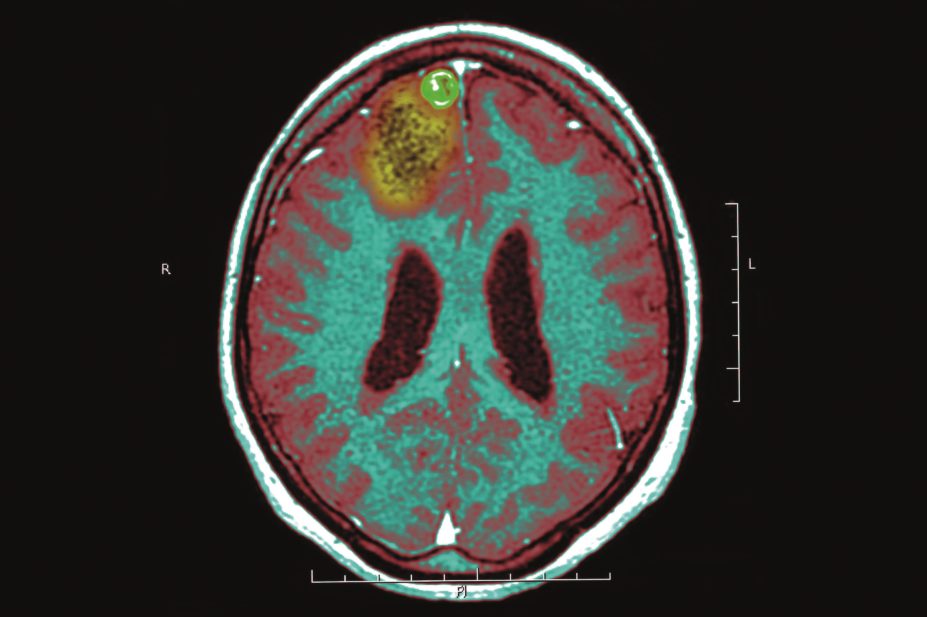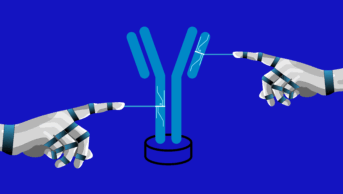
BSIP SA / Alamy
Shutting down a metabolic pathway that fuels misfiring neurons can suppress seizures in mice, according to Japanese researchers who believe the discovery could offer a fresh approach to developing more effective antiepileptic drugs.
Around 1% of people have epilepsy. Their seizures are triggered by excessive neuron activity, and most epilepsy drugs are thought to subdue this by acting on the neuron’s ion channels or neurotransmitter receptors.
But one-third of people with epilepsy are not helped by existing drugs, and it has been difficult to develop new therapies because little is known about the underlying causes of the condition. There is, however, growing evidence that epilepsy may be a disorder of energy metabolism, almost as though it were a form of diabetes.
Some people with epilepsy get relief by following a ketogenic diet, which is high in fat and low in carbohydrate. This shifts the metabolic balance of the brain, so that the neurons’ primary energy source switches from glucose to a class of compound called ketones.
Tsuyoshi Inoue at Okayama University, Japan, and colleagues now report in Science
[1]
that two molecules – one of them an existing epilepsy drug called stiripentol – can control seizures by mimicking the metabolic effects of a ketogenic diet.
Their research also shifts attention away from neurons as the primary target for epilepsy treatment, and on to astrocytes. These star-shaped cells provide structural support for neurons, and also supply them with additional fuel when the neurons need extra energy, such as when seizures occur. This fuel is lactate, which the astrocytes make from glucose using an enzyme called lactate dehydrogenase (LDH).
The Japanese researchers found that stiripentol could inhibit the activity of LDH, cutting off the lactate supply to neurons and preventing them from firing wildly. They also found that stiripentol could curb chemically-induced seizures in mice by LDH inhibition, and that another molecule with a similar structure — isosafrole — was even more effective. “We were surprised,” says Inoue. “It was very exciting to find that LDH inhibition could suppress seizures in a mouse model in vivo.”
Inoue hopes that LDH could now be a useful target for a new group of antiepileptic drugs. Stiripentol itself is a relatively mild LDH inhibitor, and may have other mechanisms of action in the brain. “We think that LDH inhibitors designed to act on LDH more strongly would be expected to show more success,” says Inoue. “It will be important to find and synthesise many LDH inhibitors, and then to examine whether they have antiepileptic effects.”
Treatment with an LDH inhibitor might offer a welcome alternative to a ketogenic diet, says Helen Scharfman, a neuroscientist at the Nathan Kline Institute for Psychiatric Research in Orangeburg, New York, who wrote an article to accompany the research[2]
. “It’s really hard to stay on this diet — you basically have to eat pure fat,” she says.
Scharfman agrees that high-throughput screening of compounds that inhibit metabolic enzymes, including LDH, might uncover some potential antiepileptic drug leads. Geneticists should also look for underlying mutations in metabolic enzymes and correlate them with the incidence of epilepsy, she says.
But many questions remain about the role of LDH in epilepsy. There are five forms of the enzyme, for example, and it may be important to target just one of them, says Scharfman. It is also unclear how long the protective effects of an LDH inhibitor would last, and whether the brain’s metabolic processes would adapt to long-term treatment to reduce its efficacy. For now, she says, “it’s early days”.

